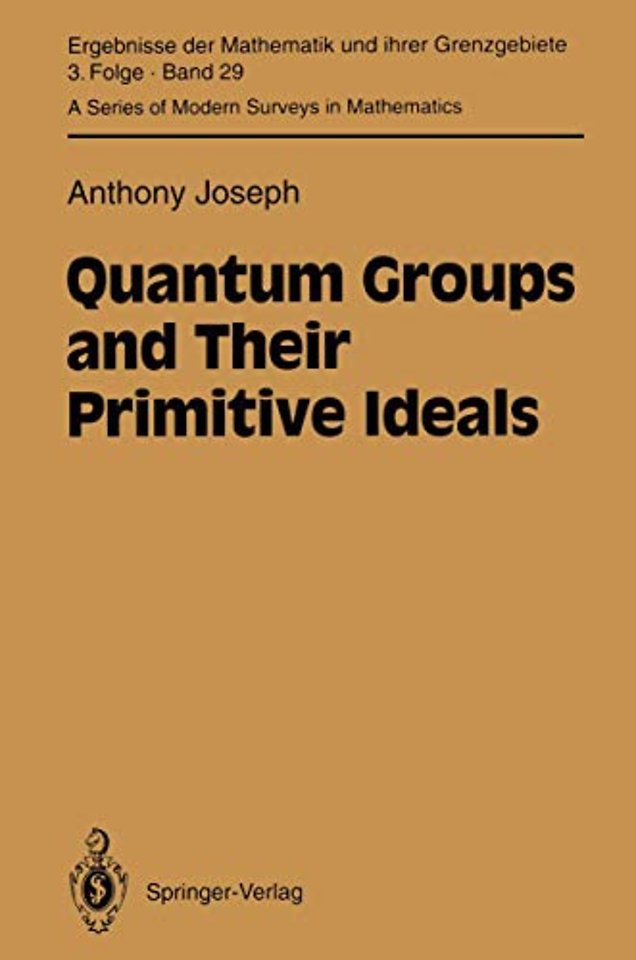Quantum Groups and Their Primitive Ideals
Paperback Engels 2011 9783642784026Samenvatting
by a more general quadratic algebra (possibly obtained by deformation) and then to derive Rq [G] by requiring it to possess the latter as a comodule. A third principle is to focus attention on the tensor structure of the cat egory of (!; modules. This means of course just defining an algebra structure on Rq[G]; but this is to be done in a very specific manner. Concretely the category is required to be braided and this forces (9.4.2) the existence of an "R-matrix" satisfying in particular the quantum Yang-Baxter equation and from which the algebra structure of Rq[G] can be written down (9.4.5). Finally there was a search for a perfectly self-dual model for Rq[G] which would then be isomorphic to Uq(g). Apparently this failed; but V. G. Drinfeld found that it could be essentially made to work for the "Borel part" of Uq(g) denoted U (b) and further found a general construction (the Drinfeld double) q mirroring a Lie bialgebra. This gives Uq(g) up to passage to a quotient. One of the most remarkable aspects of the above superficially different ap proaches is their extraordinary intercoherence. In particular they essentially all lead for G semisimple to the same and hence "canonical", objects Rq[G] and Uq(g), though this epithet may as yet be premature.
Specificaties
Lezersrecensies
Inhoudsopgave
Rubrieken
- advisering
- algemeen management
- coaching en trainen
- communicatie en media
- economie
- financieel management
- inkoop en logistiek
- internet en social media
- it-management / ict
- juridisch
- leiderschap
- marketing
- mens en maatschappij
- non-profit
- ondernemen
- organisatiekunde
- personal finance
- personeelsmanagement
- persoonlijke effectiviteit
- projectmanagement
- psychologie
- reclame en verkoop
- strategisch management
- verandermanagement
- werk en loopbaan

